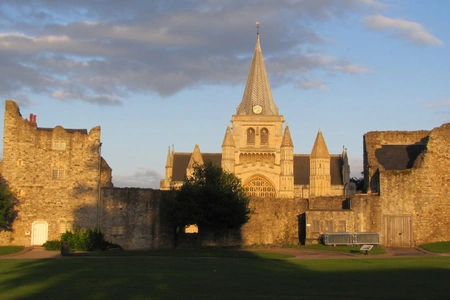
- A Level

Humanities at Rochester Independent College offer students a rich, thought-provoking exploration of human culture, belief, and experience. From the epic poetry of Homer and Virgil in Classical Civilisation to the sweeping narratives found in A level Art History, students uncover the stories that have shaped societies across time. Whether examining ancient artefacts, architectural marvels, or geographical patterns and processes, the focus is always on understanding the deeper meanings behind human actions and achievements. In Geography, students engage with the challenges and possibilities of our planet, learning to connect past patterns with present realities and future solutions.
Across all subjects—History, Philosophy, Religious Studies, and beyond—RIC encourages analytical thinking, evidence-based argument, and open-minded inquiry. Students explore philosophical concepts such as beauty, mind, and morality, wrestle with fundamental questions about existence and ethics, and examine the evolving role of religion in contemporary life. The humanities at RIC are not about memorising facts—they're about developing new ways of seeing and thinking. Through active engagement, debate, and research, students become informed, empathetic interpreters of the world, prepared to contribute thoughtfully to complex global conversations.

Educating the mind without educating the heart is no education at all.

RIC’s budding archaeologists, led by Vice Principal and History teacher Ellen Crozier, have been uncovering fascinating relics of the past. A standout discovery came from Year 8 student Ethan, who unearthed a medieval coin later identified as a Henry VI halfgroat. The find sparked a college-wide numismatic investigation, earning praise from experts who commended the group’s work as exceeding typical archaeological standards.
Even more intriguing was the rediscovery of RIC’s own 17th-century witch bottle—an object once used to ward off evil. Initially overlooked during a building extension over a decade ago, the bottle was stored in the College cellar until visiting mudlarker Fleur Alston identified its true significance. Containing traditional contents such as pins and possibly organic matter, the bottle was carefully opened during a live-streamed session, with guidance from the Museum of London’s concealed objects team—bringing a touch of dark academia and a deeper sense of historical connection to life at RIC.
One cannot conceive anything so strange and so implausible that it has not already been said by one philosopher or another.